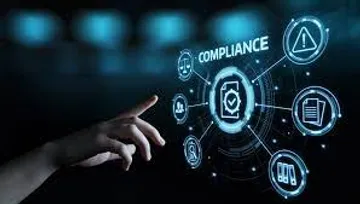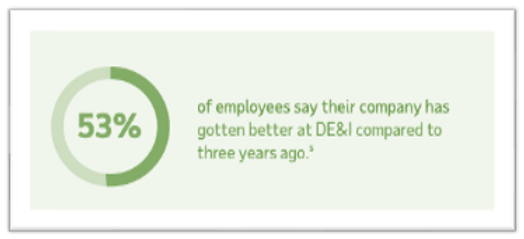Navigating HR Compliance in 2024: Top Issues and Suggestions
As we open the door to 2024, we see the landscape of Human Resources (HR) compliance continuing to evolve at a rapid pace. The only constant in the...
4 min read
 Rhonda Aghaie
:
Jul 5, 2024 1:25:11 AM
Rhonda Aghaie
:
Jul 5, 2024 1:25:11 AM

 In the digital age, where information is king, the HR department plays a pivotal role in managing and safeguarding sensitive employee data. As technology advances, so do the threats to data security. This Insight explores the importance of cultivating a cybersecurity culture within HR to protect valuable employee information.
In the digital age, where information is king, the HR department plays a pivotal role in managing and safeguarding sensitive employee data. As technology advances, so do the threats to data security. This Insight explores the importance of cultivating a cybersecurity culture within HR to protect valuable employee information.
Before we dive in, let's look at a situation where cybersecurity and HR can cross paths. Imagine yourself in the bustling offices of a multinational corporation; the HR department diligently manages a trove of confidential employee information. Files are meticulously organized, passwords are fortified and encryption layers are wrapped securely around sensitive data. However, even the most fortified fortresses face unforeseen challenges in the maze of cyber threats.
Meet Sarah, a seasoned HR professional known for her attention to detail. One fateful day, while managing an influx of employee onboarding documentation, a harmless-looking email landed in her inbox. It bore the markings of legitimacy—a familiar logo, a seemingly official address, and a request for urgent information. In the rhythm of a busy day, Sarah, in a moment of distraction, unwittingly clicked a link concealed within the email. Little did she know, this innocuous click unleashed a cascade of events. Unbeknownst to her, the email was a cunning phishing attempt designed to infiltrate the HR system and extract sensitive employee data.
Within hours, the once impenetrable walls of the HR database were breached. Confidential files, salary information, and personal details were now in the hands of cybercriminals. Once a bastion of trust, the organization faced a stark reality—a data breach with far-reaching consequences. You can imagine what transpires over the next several days and a stark reminder that in the interconnected world of employee information, a single click can unravel the fabric of trust and compromise the very foundation of an organization.
What steps can HR take to strengthen their position as custodians of data protection?
HR as a Cybersecurity Ambassador
As cyber threats evolve, HR departments face an increasing risk of data breaches. From phishing attacks to ransomware, the nature of these threats demands a proactive approach to safeguarding employee data.
HR departments are increasingly susceptible to various risks that can lead to data breaches. Understanding these threats is crucial for HR professionals to implement adequate preventive measures. Here are some critical threats and the associated risks of data breaches in HR:
|
Event |
Threat |
Risk |
|
Phishing Attack |
Deceptive attempts to trick HR professionals into providing sensitive information, such as login credentials or employee details. |
Falling victim to phishing attacks can lead to unauthorized access to HR systems, compromised employee data and potential identity theft. |
|
Ransomware |
Malicious software that encrypts HR data, holding it hostage until a ransom is paid. |
A successful ransomware attack can result in the loss of critical HR information, disruption of HR processes and financial losses for the organization. |
|
Insider Threats |
Insiders with malicious intent or unintentional negligence pose a significant risk. This includes disgruntled employees, accidental data leaks, or employees falling victim to social engineering. |
Insider threats can lead to the unauthorized disclosure of sensitive HR information, data manipulation and damage to the organization's internal trust. |
|
Weak Passwords and Authentication |
Weak or compromised passwords, coupled with inadequate authentication measures, make it easier for cybercriminals to gain unauthorized access. |
Unauthorized access can expose confidential HR records, employees' personal information, and potential misuse of HR systems. |
|
Outdated Security Measures |
Failure to regularly update and patch HR systems and software can leave vulnerabilities open to exploitation. |
Outdated security measures increase the likelihood of successful cyberattacks, potentially resulting in data breaches and compromise of sensitive HR data. |
|
Mobile Device Security Risks |
Using mobile devices for HR tasks can introduce security risks, especially if devices are lost, stolen, or inadequately protected. |
Compromised mobile devices may lead to unauthorized access to HR systems, exposing employee data and creating potential compliance issues. |
By understanding these specific threats and associated risks, HR professionals can tailor their cybersecurity measures to address vulnerabilities and implement proactive strategies to mitigate the likelihood of data breaches. Ongoing awareness and training are critical components in building a resilient defense against the evolving cybersecurity threat landscape in HR.
HR's Role in Data Protection
HR professionals emerge as custodians entrusted with preserving the confidential details of employees' professional and personal journeys. The responsibility extends beyond policy enforcement—it embodies a commitment to upholding individual privacy and fostering an environment where trust flourishes.
The fallout from a data breach goes beyond compromised privacy; it erodes the foundation of trust built by HR professionals. The scars of such an incident linger, impacting the organization's reputation and undermining the commitment to protect the interests of employees. HR's role in data protection is not just about safeguarding information; it's a calling to nurture a workplace where individuals feel secure, valued, and confident that their personal details are handled with the utmost care. This commitment defines the essence of HR's contribution to organizational success.
Creating a Cybersecurity Culture in HR
As the guardians of employee data, HR professionals should partner with IT and evaluate their cybersecurity policies to create a resilient cybersecurity culture. Here are some suggestions to set the stage for a cybersecurity-focused culture in HR:
Educating HR Professionals: Continuous training is vital. HR teams must stay informed about the latest cybersecurity threats and best practices. Workshops, webinars, and certifications can help build a knowledgeable and vigilant HR workforce.
Implementing Secure HR Technologies: Choosing secure HR software is a critical step. Encryption, multi-factor authentication, and regular security updates are essential features to look for in HR tools.
Balancing Transparency and Security: While transparency with employees is crucial, HR must strike a delicate balance. Communicating data practices, security measures, and the importance of employee cooperation in maintaining data security fosters trust while protecting sensitive information.
Remote Work Challenges and Solutions: The rise of remote work brings unique cybersecurity challenges. HR should implement secure communication channels, conduct remote security training, and regularly assess and update remote work policies to address potential vulnerabilities.
Data Breach Response: In the unfortunate event of a data breach, HR's response is critical. A well-defined incident response plan, including communication strategies, legal considerations, and steps to mitigate further damage, is essential for a swift and effective response.
Building a cybersecurity culture within HR is not just a best practice; it's a necessity. The proactive measures taken by HR professionals can significantly reduce the risk of data breaches, protecting both employee privacy and the organization's reputation.
In the cyber landscape where data reigns supreme, HR professionals emerge not only as guardians of employee information but also as architects forging an indomitable cybersecurity fortress. From the bustling halls of multinational corporations to the resilient narratives of professionals like Sarah, our journey unveils the critical need for focus on cybersecurity within HR.
As the curtains draw on this exploration, envision a legacy where HR's proactive measures are an unyielding defense against evolving threats. Each click, encrypted layer, and vigilant HR professional contributes to an organizational narrative fortified against digital disruption. This is not merely a conclusion; it's a rallying call. The legacy of HR in cybersecurity resilience is not a mere best practice—it's a necessity.
Take a bow, HR professionals—your role in this cybersecurity saga isn't just pivotal; it's legendary. By staying informed, partnering with IT to identify and implement secure technologies, and fostering a culture of vigilance, HR can lead the charge in safeguarding employee data in the digital era.
Share in the comments how your company's HR professionals are taking data protection to the next level.

As we open the door to 2024, we see the landscape of Human Resources (HR) compliance continuing to evolve at a rapid pace. The only constant in the...

Can you remember when the traditional office thrived in the symphony of ringing phones, clattering keyboards, and the distant hum of the coffee...

Imagine a boardroom where voices harmonize from different backgrounds, a mosaic of perspectives painting the canvas of innovation. Now, picture a...